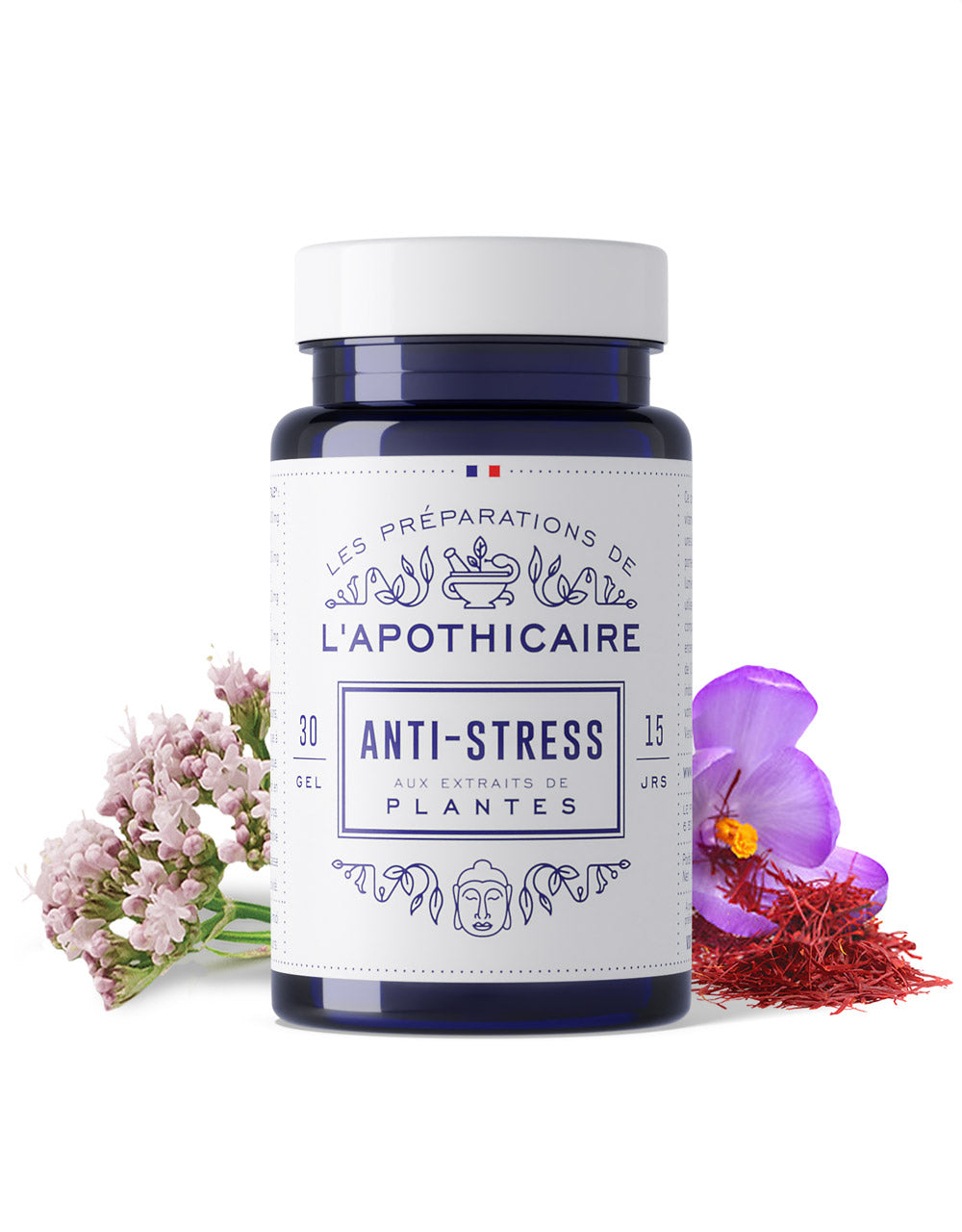Do you often have stomach aches for no apparent reason, especially during periods of intense stress? You are not alone! Stress-related abdominal pain is common and can greatly affect your daily life. Whether it is before an exam, an important interview or in the midst of a personal crisis, stress can manifest itself physically in uncomfortable ways. Fortunately, there are natural and effective solutions to soothe these stomach aches by reducing your stress level. In this article, we offer you 5 practical tips to de-stress and regain your well-being.
- How to recognize a stomach ache caused by stress?
- Tip #1: Practice relaxation techniques
- Tip #2: Exercise regularly
- Tip #3: Improve your sleep
- Tip #4: Avoid Bad Habits
- Tip #5: Anti-stress supplements
- When to consult a healthcare professional?
How to recognize a stomach ache caused by stress?
Stress-related abdominal pain often manifests as cramps, spasms, or a knotted feeling in the stomach . This pain can be diffuse or localized and is usually associated with periods of emotional tension or anxiety. You may notice that this stomach pain occurs or intensifies during stressful situations such as exams, job interviews, or personal conflicts.
Symptoms can include bloating, gas, nausea, and even bowel problems such as diarrhea or constipation . Unlike other digestive conditions, stress-related abdominal pain is not usually accompanied by fever, persistent vomiting, unexplained weight loss, or blood in the stool. Additionally, it tends to improve when the stressor disappears or after practicing relaxation techniques.
Stress affects the digestive system :
- by disrupting intestinal motility,
- by increasing the secretion of gastric acids,
- by causing inflammation of the intestinal mucosa.

This can lead to abdominal hypersensitivity and imbalances in the intestinal flora . To recognize a stomach ache due to stress, it is important to observe the correlation between your symptoms and your stress levels. If the pain decreases after relaxation exercises or when the stressful situation is resolved, it is likely that stress is the cause.
We know how uncomfortable these situations can be. That's why we offer you 5 tips to manage your stress and limit those stomach aches.
Tip #1: Practice relaxation techniques
Relaxation techniques such as yoga , mindfulness meditation, and listening to soothing music are very effective in reducing stress. These practices help calm the nervous system by reducing the production of cortisol, the stress hormone . By promoting mental and physical relaxation, they can ease muscular tension in the abdomen, improving digestive comfort. For example, mindfulness meditation encourages a focus on the present moment, which can reduce the anticipatory anxiety often associated with digestive upset.
Tip #2: Exercise regularly
Physical activity, even 20 minutes 3 to 4 times a week, has beneficial effects on the digestive system and general well-being. Exercise stimulates the release of endorphins, natural hormones that act as painkillers and improve mood . In addition, physical activity promotes intestinal motility, which can reduce hypersensitivity and digestive discomfort related to stress. Activities such as walking, cycling, swimming or yoga are particularly recommended for their gentle but effective impact on the body.

Tip #3: Improve your sleep
Quality sleep is essential for stress management and overall health. Lack of sleep can exacerbate cortisol production, increasing stress levels and abdominal pain. Practices like meditation or reading before bed can help you fall asleep more easily. Be sure to maintain a regular sleep routine, in a calm and restful environment, to allow your body to recover and regulate stress effectively.
Tip #4: Avoid Bad Habits
Alcohol and tobacco use can aggravate stress and digestive disorders. Alcohol can irritate the gastric mucosa, increasing acidity and causing inflammation, while tobacco affects blood circulation and can disrupt intestinal motility . By avoiding these substances, you reduce the irritating factors for your digestive system and decrease the overall level of stress on your body.
Tip #5: Anti-stress supplements
Some dietary supplements can help manage stress and its physical manifestations. For example, products containing rhodiola, saffron, and vitamin B6 are known for their beneficial properties on the nervous system . Rhodiola is a plant that helps the body adapt to emotional and physical stress. Saffron has calming properties and can improve mood. Vitamin B6 contributes to the normal functioning of the nervous system and to the reduction of fatigue.

Soothe your stress-related stomach aches with our anti-stress capsules!
Our formula based on saffron and rhodiola reduces fatigue and soothes tension
Discover the anti-stress capsules!When to consult a healthcare professional?
Severe and persistent pain
If you experience severe abdominal pain that does not improve despite stress management techniques or natural remedies , it is important to see a doctor. Severe pain can be a sign of serious medical conditions such as ulcers, gallstones, or inflammation of internal organs.
Alarming associated symptoms
If your abdominal pain is accompanied by symptoms such as fever, persistent vomiting, rectal bleeding or blood in the stool, unexplained weight loss, jaundice (yellowing of the skin and eyes), or difficulty breathing , it is imperative that you seek immediate medical attention. These signs may indicate urgent medical problems such as appendicitis, pancreatitis, or inflammatory bowel disease.

Change in bowel habits
A sudden and significant change in your bowel habits, such as alternating diarrhea and constipation, abnormal frequency of bowel movements, or very hard stools , may warrant medical evaluation. These changes may be a sign of underlying digestive issues that are not solely related to stress.
Impact on quality of life
If your stomach pain is significantly interfering with your daily activities, sleep, or overall well-being , it is advisable to consult a healthcare professional. Chronic pain can not only affect your physical health, but also your mental health, worsening the stress cycle.
Medical history
If you have a history of gastrointestinal diseases, such as Crohn's disease, irritable bowel syndrome (IBS), or a family history of colorectal cancer , it is wise to see a doctor as soon as abdominal pain begins. This history can increase your risk of serious complications.
Lack of relief with stress management measures
If you have tried relaxation techniques, dietary changes, or natural remedies without seeing any improvement , it is time to seek the advice of a healthcare professional. This helps ensure that there is no underlying medical cause that requires specific treatment.
We've given you our solutions to help you relieve your stress-related stomach aches. Now, don't let your symptoms drag on for too long. This is not to be taken lightly! See a professional as soon as you feel the need.







